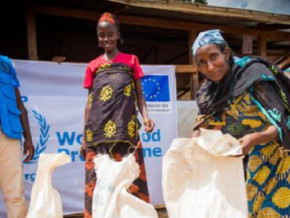
Cocoa transformation: only one chocolate factory

(Business in Cameroon) - Cameroon currently has just one local cocoa processing firm, Sic-Cacaos, based in the economic capital, Douala, with an annual grinding capacity of 30,000 tons. Although the country has the necessary tonnage and policies to encourage the transformation of Cocoa, its realization is still very much awaited by the authorities.
However, Morocco’s leading chocolate-making company, Compagnie Cherifienne de Chocolaterie, said it will build a 40,000 ton-per-year chocolate factory in Cameroon this year, according to Reuters.
The attraction of cocoa farming in Cameroon is that it often allows farmers to plant food crops for subsistence and cocoa for cash on the same piece of land. In most parts of Cameroon the labour intensive nature of cocoa production allows for large farm sizes, with most farms being about 0.5 to 13 hectares in size.
Perked up by the upsurge in prices and the measures taken by the government, according to the African Report, the production of cocoa rose from 170,000 tons in 2007, to 230,000 tons in 2009 and 250,000 tons in 2010, placing the country fifth amongst global producers.
Statistics from the Cocoa and Coffee Inter-professional Board (CCIB) show that cocoa production and exports have been on a steady rise in the past five years. Production moved from 190,870 metric tons in the 2009-2010 season to 219,000 metric tons in the 2010-2011 season. Authorities of the Ministry of Agriculture and Rural Development put the 2010-2011 production at 240,000 metric tons. Production is projected to hit 350,000 metric tons in 2015.
JM
Mags frontpage
- Most read 7 days
- shared 1 month
- read 1 month



























